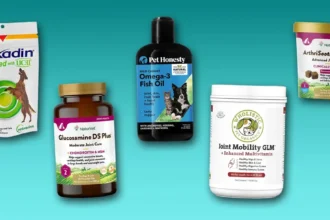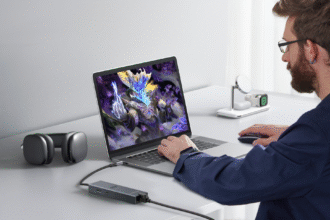Introduction
If you’ve ever been on the receiving end of your puppy’s sharp little teeth, you know how painful and frustrating it can be. Puppy biting is a common issue for new dog owners, but it’s also a natural part of their development. While playful nips may seem cute at first, they can quickly become a problem if not properly addressed.
- Introduction
- Section 1: Understanding Why Puppies Bite
- Section 2: Puppy Biting Solutions for Immediate Relief
- Redirect to Appropriate Toys
- Teach the ‘No Bite’ Command
- Positive Reinforcement
- Stay Calm and Consistent
- Section 3: Preventing Aggressive Biting
- Section 4: When to Seek Professional Help
- Section 5: Further Reading on Puppy Biting
- Bonus Tip: Mental and Physical Stimulation
- Conclusion
In this post, we’ll dive into why puppies bite and give you simple, effective solutions to manage the behavior. For those struggling with more serious biting, we’ll also point you to an in-depth resource to help with aggressive puppy biting.
Section 1: Understanding Why Puppies Bite
Biting is a normal part of puppyhood. Puppies explore the world with their mouths much like babies do. Whether it’s chewing on toys, hands, or furniture, your puppy is learning about their environment. They may also bite when they’re teething to soothe sore gums.
However, it’s important to know the difference between playful biting and aggressive behavior. Playful nipping is common during playtime or when your pup is excited. But if your puppy’s biting is accompanied by growling, snapping, or if they seem overly aggressive, it’s time to take action. Early intervention is key in teaching them how to use their mouth appropriately before it becomes a bigger issue.
Section 2: Puppy Biting Solutions for Immediate Relief
While it’s normal for puppies to bite, you don’t have to suffer through it. Here are some quick solutions to ease the biting and start teaching better behavior:
Redirect to Appropriate Toys
The first thing you’ll want to do is redirect your puppy’s biting to something that’s actually okay to chew. A great way to do this is by offering them chew toys specifically designed for puppies. Choose toys that are soft enough for their baby teeth but sturdy enough to last through chewing sessions. Automatic dog toys are a great option too, as they keep your puppy entertained and mentally stimulated without needing constant supervision. These toys help burn off that extra energy, which can reduce biting.
Teach the ‘No Bite’ Command
Another crucial step is teaching your puppy the “No Bite” command. When your puppy bites, immediately stop interacting with them and say “No bite!” in a firm but calm voice. Then, redirect their attention to a toy. If they stop biting you and go for the toy, reward them with praise or a treat. Over time, they’ll learn that gentle play earns them rewards, while biting causes playtime to end.
Positive Reinforcement
It’s tempting to punish bad behavior, but puppies learn best through positive reinforcement. Instead of scolding or physically disciplining your puppy, focus on rewarding the behaviors you want to see more of. Whenever they play without biting or redirect their biting to a toy, praise them enthusiastically or give them a small treat. This teaches them that good behavior equals good things!
Stay Calm and Consistent
It’s important to remain patient and consistent when dealing with puppy biting. Yelling or hitting will only confuse your pup and could make the problem worse. Instead, keep your responses calm and consistent, and make sure everyone in your household responds in the same way.
Section 3: Preventing Aggressive Biting
Aggressive biting is more concerning, but there are ways to prevent it from developing. Socialization and controlled play are two big keys here.
Socialization
Getting your puppy socialized as early as possible is one of the best ways to prevent aggressive behaviors. Introduce them to different people, dogs, and environments in a controlled way. A well-socialized puppy is less likely to bite out of fear or anxiety.
Controlled Playtime
Puppies often bite when they’re over excited during play. To help manage this, keep play sessions short and controlled. If your puppy gets too rough, end the play session and give them some quiet time. You want to teach them that playtime continues only when they play nicely.
Supervised Play with Other Dogs
Allowing your puppy to interact with older, well-behaved dogs can also help. Older dogs naturally teach puppies bite inhibition through their body language and responses. Just make sure the interaction is always supervised to avoid any unnecessary conflicts.
Section 4: When to Seek Professional Help
There are times when biting goes beyond normal puppy play. If your puppy is biting aggressively and isn’t responding to the usual training methods, it may be time to consult a professional.
Signs of Aggressive Biting
Look out for warning signs like snapping, growling, or biting that break the skin. If your puppy’s biting seems to be getting worse or you’re unable to control it, this could be a sign of deeper behavioral issues.
Consulting a Trainer or Veterinarian
In these cases, it’s best to consult with a professional dog trainer or your veterinarian. They can help assess the situation and provide tailored advice. Early intervention with a professional can prevent more serious issues from developing as your puppy matures.
Section 5: Further Reading on Puppy Biting
If you’re dealing with more serious puppy biting or just want a deeper understanding of how to handle it, I recommend checking out this helpful resource: My Puppy Keeps Biting Me Aggressively. This guide covers more advanced tips and tricks that can help you regain control and ensure your puppy grows up well-mannered and safe around others.
Bonus Tip: Mental and Physical Stimulation
A tired puppy is a well-behaved puppy! Make sure to engage your pup with plenty of physical and mental stimulation throughout the day. Games, puzzle toys, and interactive play can burn off excess energy and reduce biting behaviors. The more you stimulate your puppy’s mind and body, the less likely they’ll resort to biting out of boredom.
Aslo automatic dog toys can be a fantastic option to keep your pup mentally stimulated and entertained, minimizing the need to bite or chew on your hands. If you’re curious about the best options, check out this detailed comparison of Automatic Dog Toys to help you make the right decision for your puppy’s needs.
Conclusion
Puppy biting is completely normal, but it’s important to train them early so that playful nips don’t turn into aggressive bites. By using positive reinforcement, redirecting their energy to toys, and practicing consistent training, you can curb this behavior effectively. And if your puppy’s biting becomes aggressive, don’t hesitate to seek professional help.
For more information and tips, make sure to check out the detailed guide linked above to ensure you’re fully prepared to handle any biting issues that come your way.

















